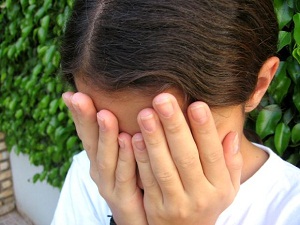
A disaster can be large or small and can occur with or without warning. No one who lives through a disaster is untouched by the experience. Disasters can threaten our sense of control and safety and can affect many aspects of our lives. The emotional effects from potential losses associated with disasters can cause unusual stress as people begin to rebuild their lives. Just as it can take months to rebuild damaged buildings, it takes time to grieve loss and rebuild lives.
This distress is often a normal reaction to an abnormal or unusual situation. Not everyone will have an emotional reaction to an event, and those who do will react in their own unique way. Some common emotional reactions may include recurring dreams, nightmares, digestive problems, anxiety, guilt, anger, isolation, headaches, fatigue, distrust in others, and muscle tension.
Children are especially vulnerable both during and after a disaster. Younger children may become clingy with parents, scared to sleep alone or show aggressive behaviors at home or school. Older youth may have delinquent behaviors, defiance, social withdrawal or decline in school performances. Children as well as adults need to express themselves. It is important to encourage all survivors to talk about their experience. Provide time for closeness, monitor media exposure to disaster trauma, maintain routines as much as possible, spend time with family and friends, involve children in preparation of family emergency kits and home drills, encourage exercise and physical activities and set gentle but firm limits for acting out behaviors.
The Department of Health and Human Resources, Bureau for Behavioral Health and Health Facilities, Office of Consumer Affairs and Community Outreach houses the behavioral health disaster program. A diverse pool of behavioral health professionals and community responders provide emotional and/or social needs support to the individuals and communities impacted by disasters or emergencies. For further information on disaster behavioral health, contact the appropriate regional Comprehensive Behavioral Health Center:
WV Map & List of DHHR BBH Comprehensive Behavioral Health Centers
The following numbers are provided for additional support:
- 988 Suicide & Crisis Lifeline: 988
-
Disaster Distress Helpline: (800) 985-5990
- National Domestic Violence Hotline: (800) 799-7233
- Addiction & Mental Health Help: (844) 435-7498
-
Problem Gamblers Hotline: (800) 426-2537